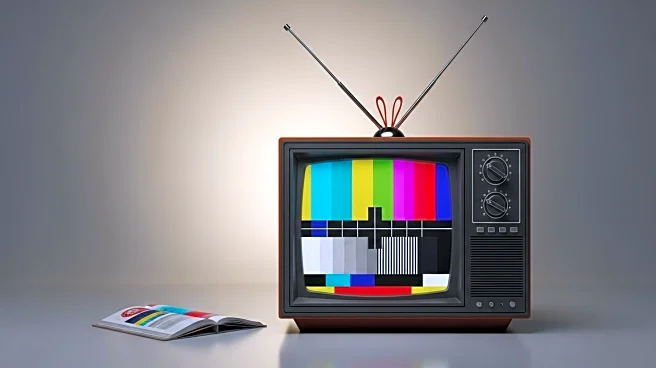What's Happening?
During the cold open of 'Saturday Night Live's' 51st season, President Trump made a surprise appearance, warning the show not to portray him negatively. The segment featured Colin Jost as 'secretary of war' Pete Hegseth, with James Austin Johnson portraying Trump. Trump humorously cautioned the show against being 'too mean,' threatening potential action from the FCC, specifically mentioning Brandon Carr. The sketch included references to recent cast changes and Trump's interactions with military leaders, blending real-life events with comedic elements.
Why It's Important?
Trump's interaction with 'SNL' highlights the ongoing tension between political figures and media portrayals. His comments reflect concerns about media influence and the potential impact of satire on public perception. The mention of the FCC suggests possible regulatory implications for media outlets, raising questions about freedom of expression and the role of government oversight. This event underscores the complex relationship between politics and entertainment, where satire can influence public discourse and political narratives.
What's Next?
The episode may prompt discussions about the boundaries of political satire and the responsibilities of media outlets in portraying public figures. 'SNL' and similar shows might face increased scrutiny regarding their content, potentially leading to debates about censorship and creative freedom. Political leaders and media organizations may engage in dialogue about the balance between humor and respect, considering the implications for public trust and media credibility. The FCC's role in regulating broadcast content could become a focal point in these discussions.
Beyond the Headlines
The interaction between Trump and 'SNL' raises broader questions about the influence of media on political dynamics. It highlights the power of satire in shaping public opinion and the potential consequences for political figures. The event may lead to reflections on the ethical considerations of media portrayals, including the impact on democratic processes and civic engagement. Additionally, it could spark conversations about the evolving nature of political communication in the digital age, where entertainment and politics increasingly intersect.









